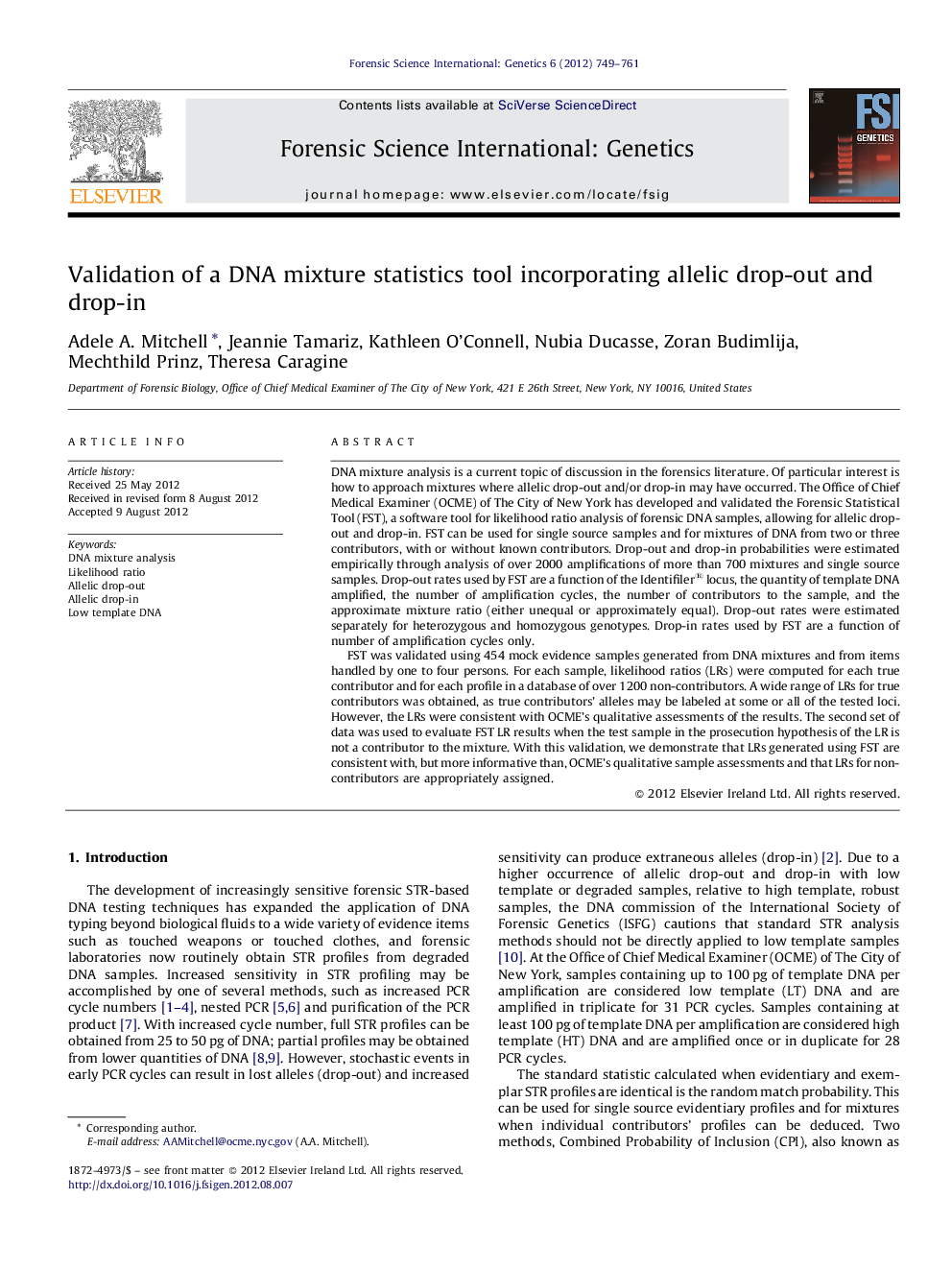| کد مقاله | کد نشریه | سال انتشار | مقاله انگلیسی | نسخه تمام متن |
|---|---|---|---|---|
| 99301 | 160943 | 2012 | 13 صفحه PDF | دانلود رایگان |

DNA mixture analysis is a current topic of discussion in the forensics literature. Of particular interest is how to approach mixtures where allelic drop-out and/or drop-in may have occurred. The Office of Chief Medical Examiner (OCME) of The City of New York has developed and validated the Forensic Statistical Tool (FST), a software tool for likelihood ratio analysis of forensic DNA samples, allowing for allelic drop-out and drop-in. FST can be used for single source samples and for mixtures of DNA from two or three contributors, with or without known contributors. Drop-out and drop-in probabilities were estimated empirically through analysis of over 2000 amplifications of more than 700 mixtures and single source samples. Drop-out rates used by FST are a function of the Identifiler® locus, the quantity of template DNA amplified, the number of amplification cycles, the number of contributors to the sample, and the approximate mixture ratio (either unequal or approximately equal). Drop-out rates were estimated separately for heterozygous and homozygous genotypes. Drop-in rates used by FST are a function of number of amplification cycles only.FST was validated using 454 mock evidence samples generated from DNA mixtures and from items handled by one to four persons. For each sample, likelihood ratios (LRs) were computed for each true contributor and for each profile in a database of over 1200 non-contributors. A wide range of LRs for true contributors was obtained, as true contributors’ alleles may be labeled at some or all of the tested loci. However, the LRs were consistent with OCME's qualitative assessments of the results. The second set of data was used to evaluate FST LR results when the test sample in the prosecution hypothesis of the LR is not a contributor to the mixture. With this validation, we demonstrate that LRs generated using FST are consistent with, but more informative than, OCME's qualitative sample assessments and that LRs for non-contributors are appropriately assigned.
Journal: Forensic Science International: Genetics - Volume 6, Issue 6, December 2012, Pages 749–761